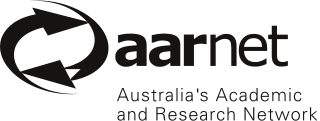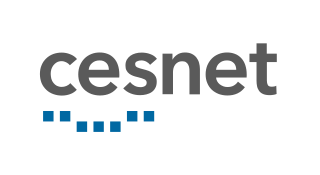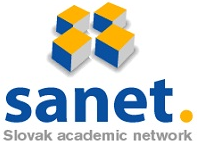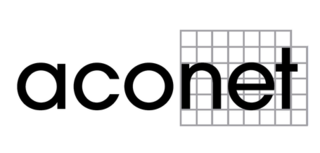
Janet is a high-speed network for the UK research and education community provided by Jisc, a not-for-profit company set up to provide computing support for education. It serves 18 million users and is the busiest National Research and Education Network in Europe by volume of data carried. Previously, Janet was a private, UK-government funded organisation, which provided the JANET computer network and related collaborative services to UK research and education.

Internet2 is a not-for-profit United States computer networking consortium led by members from the research and education communities, industry, and government. The Internet2 consortium administrative headquarters are located in Ann Arbor, Michigan, with offices in Washington, D.C., and Emeryville, California.
PIONIER is the Polish national research and education network created to provide high-speed Internet access and to conduct network-based research. Most of the government founded higher education organisations and all of metropolitan area networks in Poland are connected to the PIONIER network, and are members of the PIONIER Consortium. The previous versions of the Polish academic computer network were called POL-34 and POL-155.

AARNet provides Internet services to the Australian education and research communities and their research partners.
The China Education and Research Network is the first nationwide education and research computer network in China. The CERNET project is funded by the Chinese government and directly managed by the Chinese Ministry of Education. It is constructed and operated by Tsinghua University and the other leading Chinese universities.

CESNET is developer and operator of national e-infrastructure for science, research, development and education in Czech Republic. The CESNET association was founded in 1996 by Czech public universities and the Academy of Sciences of the Czech Republic. An important part of CESNET's activities is research of advanced network technologies and applications from hybrid networking, programmable hardware, metacomputing to middleware and video transmissions. CESNET fulfils the role of NREN within the Czech Republic and represents it in international organisations such as the GÉANT Association, EGI and GLIF. CESNET is involved in the implementation of the European backbone network project called GÉANT. Within the Czech Republic CESNET fulfils the role of a coordinator of large infrastructures involved in the field of information technology.

SURF is an organization that develops, implements and maintains the national research and education network (NREN) of the Netherlands. It operates the national research network formally called SURFnet.

CANARIE is the not-for-profit organisation which operates the national backbone network of Canada's national research and education network (NREN). The organisation receives the majority of its funding from the Government of Canada. It supports the development of research software tools; provides cloud resources for startups and small businesses; provides access and identity management services; and supports the development of policies, infrastructure and tools for research data management.

EMMAN was a company limited by guarantee and jointly owned by its members, eight Higher Education Institutions in the East Midlands region of the United Kingdom.
Delivery of Advanced Network Technology to Europe (DANTE) is a not-for-profit company that plans, builds and operates the consecutive generations of the backbone network that interconnects the national research and education networks (NRENs) in Europe. The organisation is based in Cambridge, United Kingdom and was formed in 1993 as a limited liability company owned by Réseaux Associés pour la Recherche Européenne (RARE). Ownership was transferred to a number of NRENs and government agencies in 1994.
Internet in Brazil was launched in 1988, becoming commercialy available in May 1995. As of 2023, Brazil ranked fifth in the world with 181.8 million internet users. The country had an internet penetration rate of 86.6% as of January 2024. In March 2024, Brazil ranked 27th in the Ookla Broadband Ranking, with a median fixed broadband speed of 158.57 Mbit/s. Also, as per December 2021, Brazil had 41,4 million fixed broadband accesses, most of them FTTH. However, as per 2020, most Brazilians access the Internet through a mobile connection, with more than 200 million mobile internet access.

The University Computing Centre in Zagreb has a long tradition in the area of information and communication technologies. It was founded in 1971 within the University of Zagreb, the only Croatian university at the time, with the purpose to enhance the implementation of information technologies in the academic community as well as in Croatia in general.

Iceland is among the top countries in the world in terms of Internet deployment and use. 99.68% of Icelanders used in the internet in 2021.
GARR is the Italian national computer network for universities and research. The main objective of GARR is to design and manage a very high-performance network infrastructure that delivers advanced services to the Italian academic and scientific community. The GARR network is connected to other national research and education networks in Europe and the world, is an integral part of the global Internet, and thereby promotes the exchange and collaboration between researchers, teachers, and students worldwide.

The Research and Educational Networking Association of Moldova (RENAM) is the national research and education networking organisation (NREN) of Moldova. RENAM was incorporated in June 1999 as an association under Moldovan law. It is a member of TERENA.

SANET is the national research and education networking organisation of Slovakia. The SANET association is a non-profit organisation whose members contribute to the operations of the network. It is a member of TERENA.

AMRES is the National Research and Education Networking organisation (NREN) in Serbia. After it was founded on 22 April 2010 as an institution by the Serbian government, AMRES took over the responsibility for the academic network and the associated services from the Computer Centre of the University of Belgrade. AMRES represents Serbia in international forums such as TERENA, but the University of Belgrade is still the organisation representing Serbia in the project that provides the funding for the European backbone network GÉANT.

ACOnet is the name of the national research and education network in Austria. The ACONET association promotes the development and use of that network. ACOnet is not managed and operated by ACONET, but by a unit in the Computing Centre of the University of Vienna that also operates the Vienna Internet Exchange. The University of Vienna represents ACOnet internationally, for example as a member of TERENA and as a participant in the project that funds the European backbone network GÉANT.
The Taiwan Academic Network (TANet) was founded in 1980 by Ministry of Education (Taiwan) and Taiwanese universities in order to assist with teaching and research activities for educational and research institutions. In 2006, TANet provided services to almost 4 million people.
Missouri Research and Education Network (MOREnet) is a member-driven consortium, operating as a separate business unit within the University of Missouri in Columbia, Missouri. They are primarily made up of Missouri's K-12 schools, colleges and universities, public libraries and government organizations. In addition to maintaining a computer network for Internet access to school districts and libraries in the U.S. state of Missouri. they also provide technology consulting, a technology help desk as well as professional development and training, consortium discounts and a la carte services by a team of approximately 85 subject matter experts.














